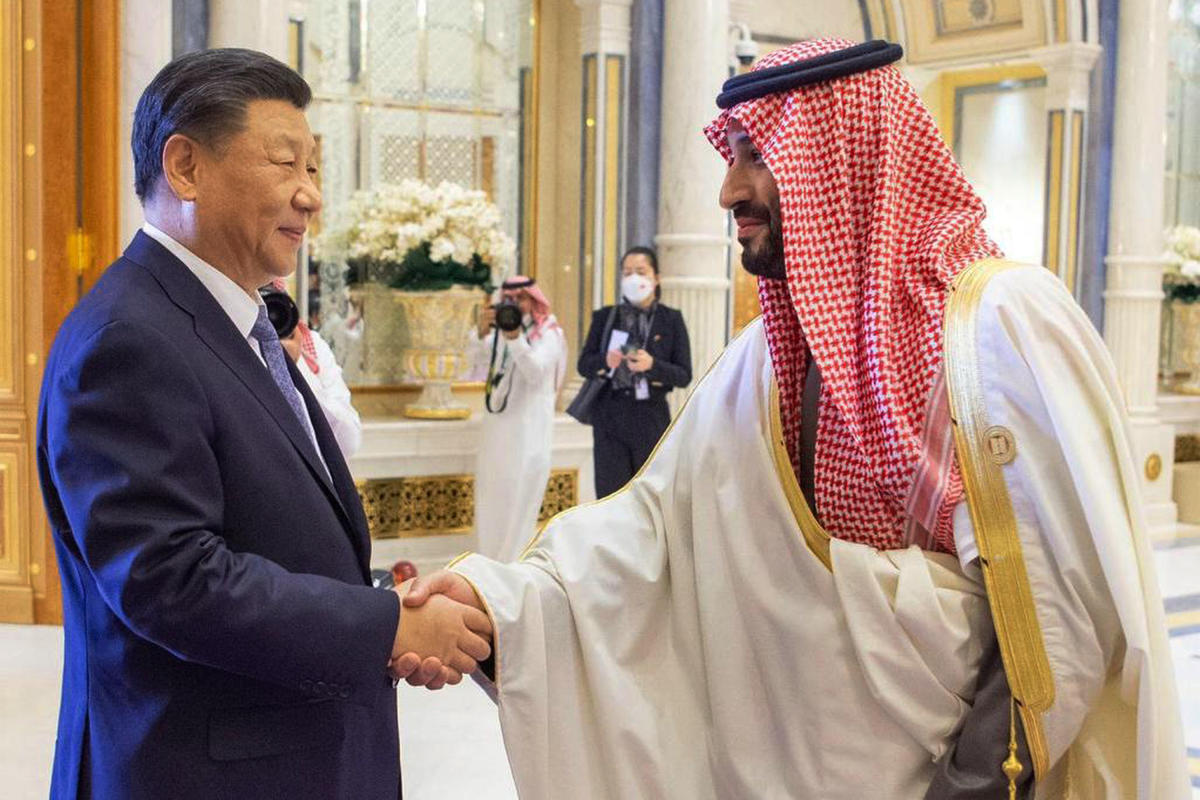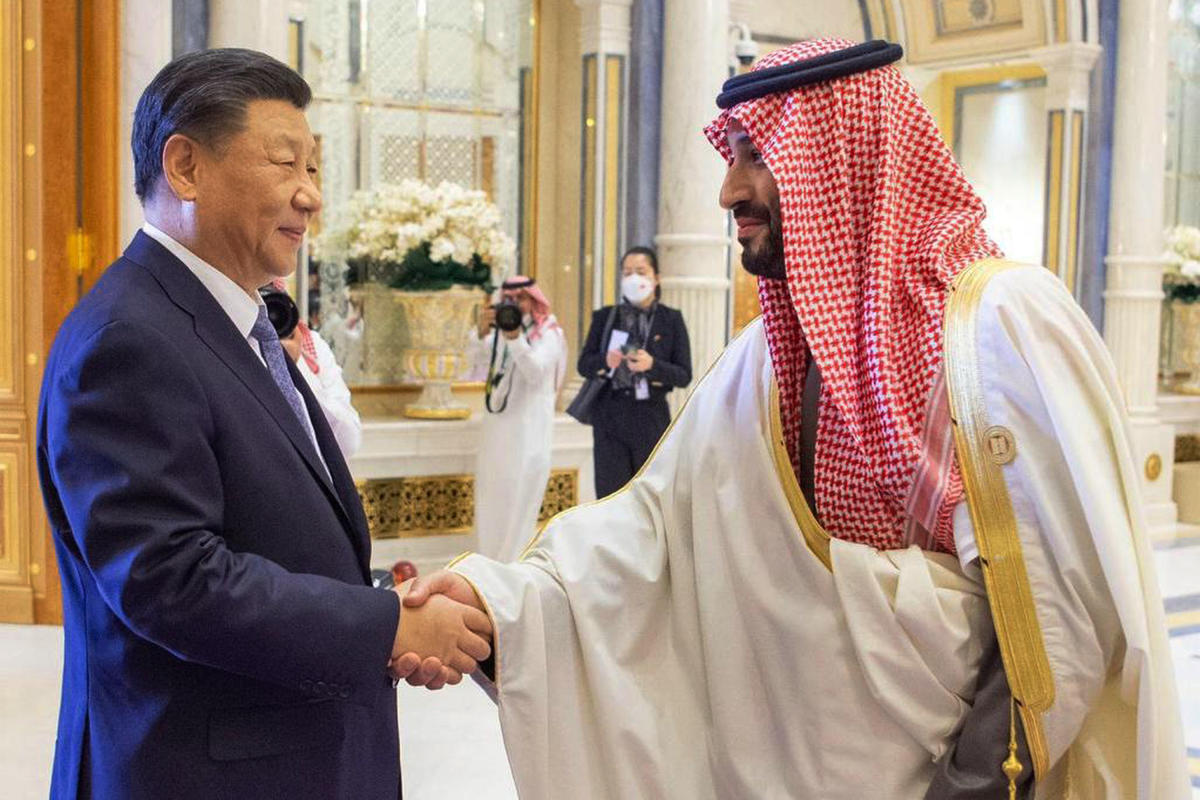
DUBAI, United Arab Emirates (AP) — Gulf Arab leaders and others in the Mideast met on Friday in Saudi Arabia as part of a state visit by Chinese leader Xi Jinping, seeking to firm up their relations with Beijing as decades of U.S. attention on the region wanes.
Speaking to representatives of the Gulf Cooperation Council, Xi described the Gulf Arab states and China as natural partners for cooperation after meeting with other regional leaders as part of his trip to Riyadh.
Before the meeting with Xi, representatives of the Gulf Cooperation Council met in a summit helmed by Saudi Crown Prince Mohammed bin Salman, further signaling his control of a kingdom still overseen by his father, the 86-year-old King Salman.
Qatar’s ruling emir, Sheikh Tamim bin Hamad Al Thani, whose country now hosts the FIFA World Cup and has largely restored ties to its Arab neighbors after a yearslong boycott, was also at the summit. Bahrain’s King Hamad bin Isa Al Khalifa, whose island nation still has strained relations with Qatar, also attended.
Prince Mohammed made a point in his opening remarks, aired on state television, to applaud Qatar for its hosting of the World Cup. He also could be seen warmly greeting Sheikh Tamim before the meeting, something unthinkable only two years earlier amid the boycott.
Xi’s visit comes as China relies on the Gulf Arab states, particularly Saudi Arabia, for billions of dollars in crude oil imports to power his country’s economy. While the United States still maintains bases across the region and stations tens of thousands of troops, Gulf Arab nations feel Washington’s attention has shifted elsewhere after the end of the wars in Afghanistan and Iraq.
Prince Mohammed touched on those energy ties in his remarks as benchmark Brent crude trades around $76 a barrel — down from highs of $122 in June. Those prices fuel the prince’s plans for a $500 billion futuristic city of Neom on the Red Sea and plans to overhaul the Saudi economy.
“The kingdom believes that hydrocarbon energy sources will remain an important resource to meet the needs of the world for the coming decades,” Prince Mohammed said. “We are aware of the importance of sustainable development and preserving the environment.”
The GCC includes Bahrain, Kuwait, Oman, Qatar, Saudi Arabia and the United Arab Emirates. The leader of the Emirates, Sheikh Mohammed bin Zayed Al Nahyan, did not attend, instead sending the ruler of the emirate of Fujairah, Sheikh Hamad bin Mohammed Al Sharqi. Kuwait’s crown prince and a representative of Oman’s sultan also attended.
They also want to maintain relations with China even as U.S. officials believe they face a growing threat from China in Asia and Russia as Moscow wages its monthslong war on Ukraine.
During Xi’s visit, Saudi officials said deals were signed between Riyadh and Beijing, including some involving Chinese technology company Huawei on cloud-computing, data centers and other high-tech ventures. The U.S. has already has warned its Gulf Arab allies about working with Huawei over spying concerns.
Xi and King Salman also agreed to hold meetings between the two countries’ leaders every two years, the state-run Xinhua news agency reported.
The agency reported that Xi met Thursday with Sudanese military leader Gen. Abdel-Fattah Burhan. The general was part of a deal struck on Monday in Sudan to establish a civilian-led transitional government following the military takeover there last year. However, no timeline has been set and the deal sparked renewed protests Thursday in Sudan.
Also on Thursday in Riyadh, Xi separately met with Egyptian President Abdel-Fattah el-Sissi and Palestinian President Mahmoud Abbas.
On Friday, Xi held one-on-one meetings with Tunisian President Kais Saied, Iraqi Prime Minister Mohammed Shia al-Sudani, Somali President Hassan Sheikh Mohamud, Mauritanian President Mohamed Ould Ghazouani and Sheikh Tamim of Qatar.
___
Follow Jon Gambrell on Twitter at www.twitter.com/jongambrellAP.




